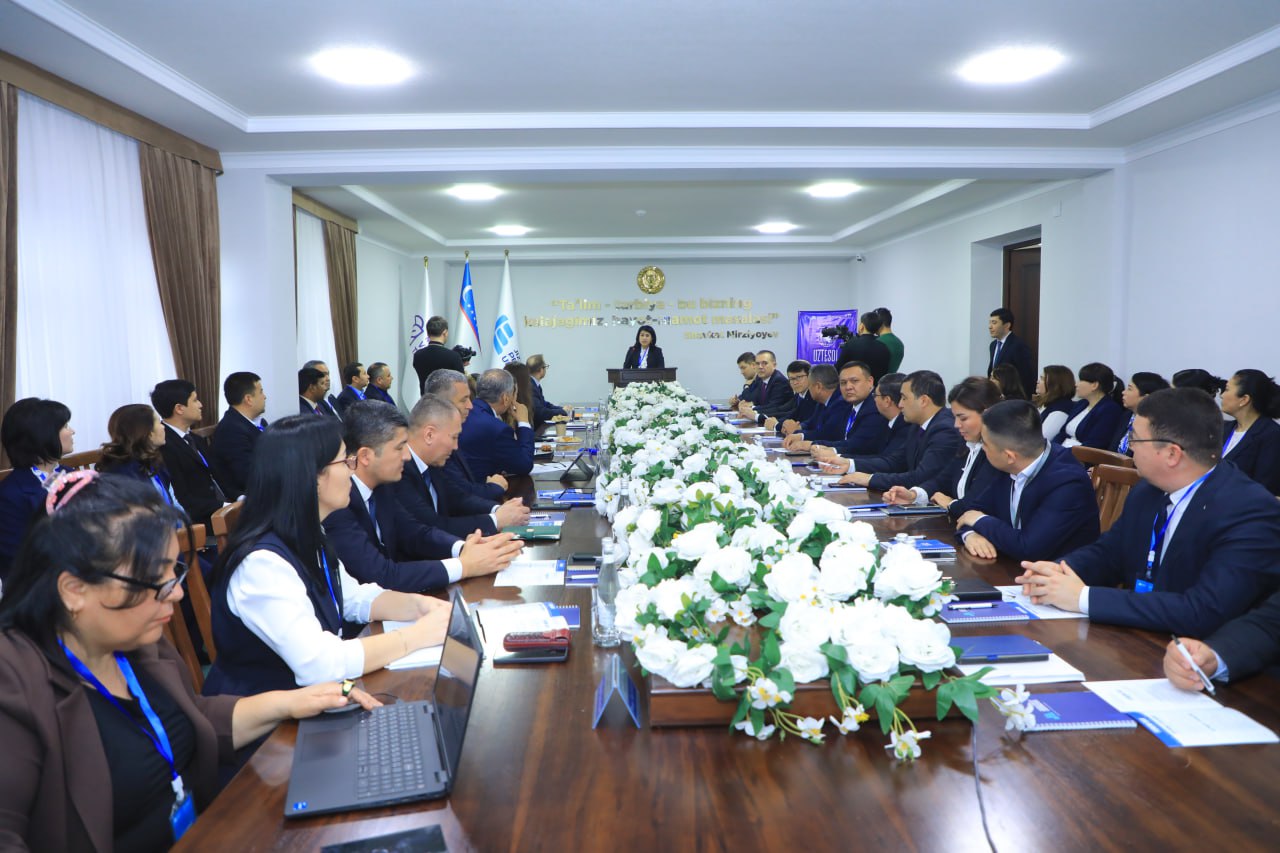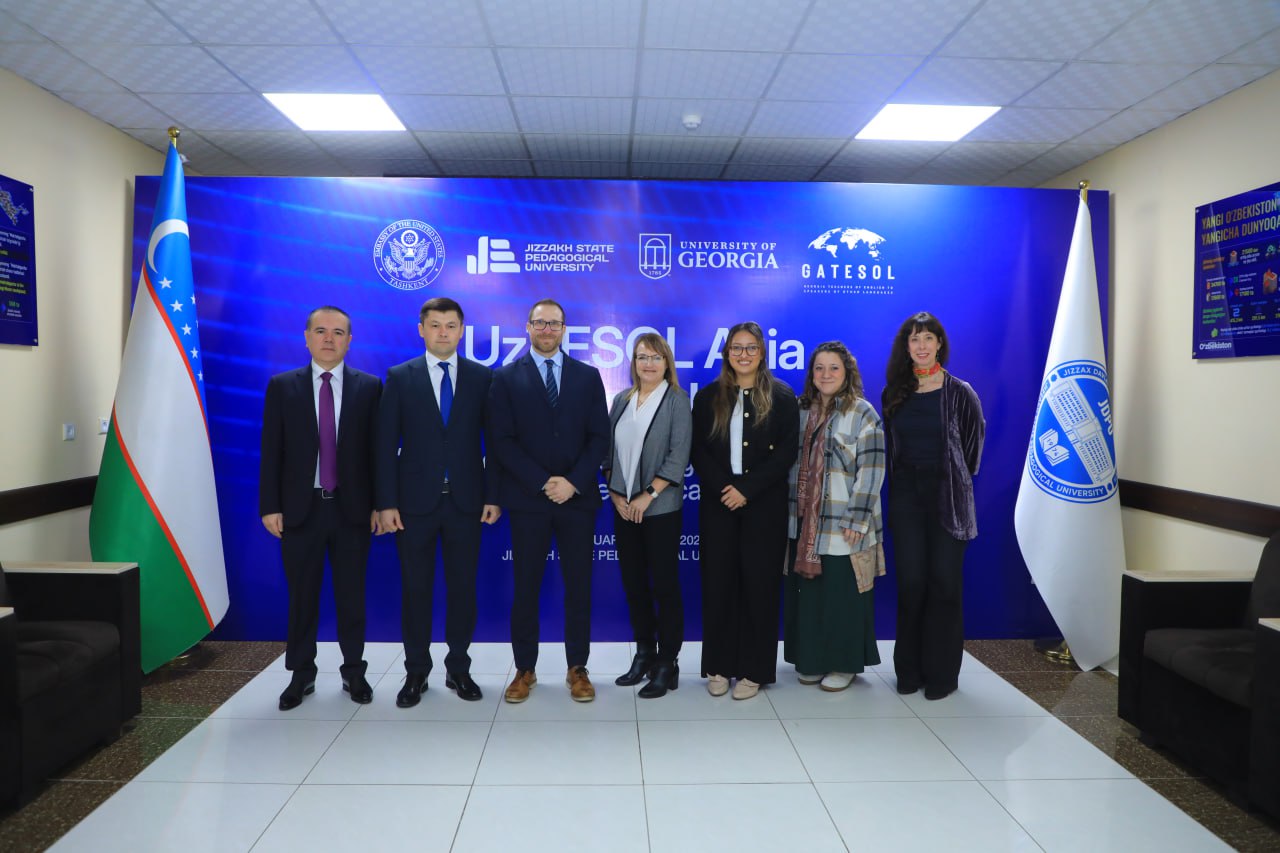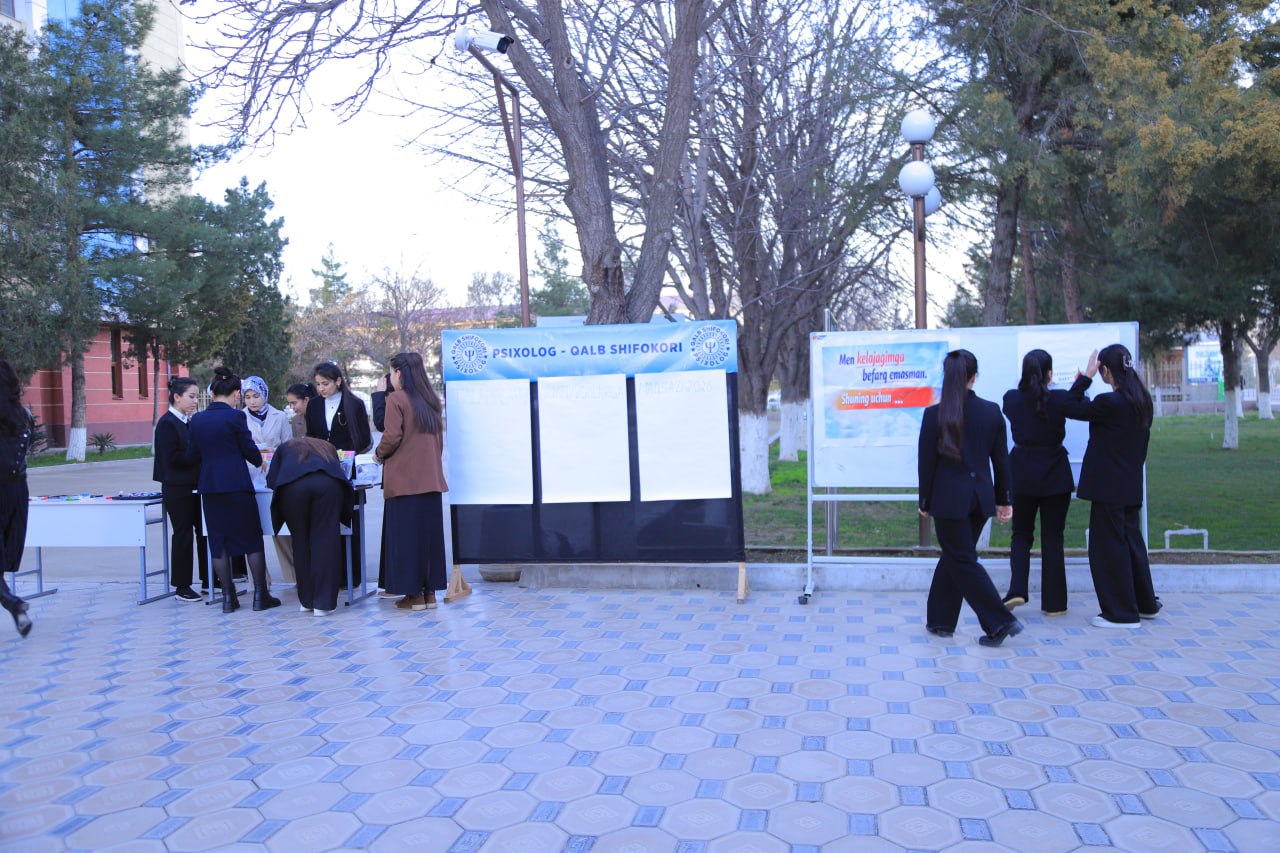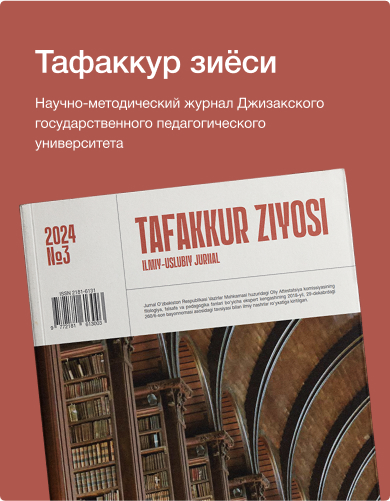Anvar Almasovich Akhatqulov
Teacher, Jizzakh State Pedagogical University, Jizzakh, Uzbekistan
Annotation: This article discusses the process of formation of research competences in future informatics teachers and the students involved in modeling the educational process.
Keywords: computer science, modeling, research competence.
Introduction
Today, many software educational tools designed for use in the educational process have been created, such as electronic textbooks, electronic study guides, electronic magazines, electronic encyclopedias, electronic libraries, virtual libraries, electronic catalogs, electronic educational methodical complex and other software tools. can be brought. In the educational system, software tools are divided into two types:
Ø software tools related to the organization and management of education;
Ø only those related to the learning process are considered software tools.
Educational software is educational-methodical and didactic support, which is located on magneto-optical media or computer networks (local, regional, global) and contains electronic form of educational information, performed at a high scientific methodical and technical level, and which performs the task of ensuring the educational process, presented in electronic form. , information about the teaching and learning methodology [1, 2, 3, 4, 5, 6, 7, 8, 9, 10, 11, 12, 13].
Materials, Methods and Discussion
Developing the research competence of future informatics teachers is a complex process. In order to solve it, the development of the model of the educational process takes an important place. In pedagogical and scientific literature, there are different views and approaches to the concept of “Future specialist model”. Many authors recognize the need to understand the qualities that reflect the main characteristics of the object being studied as a generalized image of a specialist in a particular field when it is called a model of a future specialist.
N.F.Talyzina developed a general methodological approach to modeling the process of preparing a specialist for professional activity. Emphasizing the need to reflect the expected result and the integral unity of the ways to achieve it in the model, the author states the following: “The problem of the expert model is important in determining the content of educational programs as well as curricula” [14, 15].
Pedagogical scientist N.A. Muslimov says that the expert model consists of the following three structural foundations:
types of activities that arose based on the characteristics of a new social stage, types of activities for which professional requirements are clearly indicated,
types of activities organized according to the essence of the socio-political structure of the state and its spiritual and moral system.
N.A. Muslimov defines the concept of an expert model as follows: an expert model is a model that ensures the successful resolution of problematic situations arising in the field of production, describes certain qualities, and reflects the professional’s independent learning and self-development [16].
On the basis of scientific research, the knowledge and skills of general professional and specialized subjects that must be mastered by students in classroom training and independent education, the methodology of their formation and the use of software training tools, the logical structure, are determined, and in the process of creative preparation of future informatics teachers for professional activities in general professional and specialized subjects. it is desirable to improve the structuremodel of specialist training in the environment of using software training tools.
Computer science education covers the following skills:
Ø development of programmatic educational and methodological support of training sessions held in general professional and specialized subjects;
Ø development of students’ independent and creative work skills by programming objects of
technological processes of practical training;
Ø ideological, scientific, visual, systematic, consistent presentation of educational information of educational materials;
Ø purposeful, consistent use of methods, forms, tools and technologies that develop students’
research qualities;
Ø creative use of the possibilities of information technologies in the organization of pedagogical activity;
Ø development of methods and mechanisms for monitoring and quality assessment of production processes related to the creation and use of modern information technology systems.
According to the didactic characteristics of the professional competences of computer science
teachers, it should be studied by dividing them into methodical-organizational, technological-process and creative-research types. Methodological and organizational research:
Ø educational-methodical documents necessary for teaching future informatics teachers;
Ø development of technical means of teaching and their use;
Ø regular self-improvement in the system of methods, tools and forms of teaching science and
pedagogical activities as a result of independent education and creative research;
Ø use of modern information and communication technologies, etc. includes skills.
Technological process competences include “research-technological activity”: not solving software-technological, creative issues, but implementing them through experience, that is, through the technology of preparing programs and applications and their implementation. An important aspect of this approach is that the student works almost in real production conditions.
Creative-research competencies is one of the ways to develop creative thinking of future informatics teachers – organizing lessons based on program design and modeling. The design and modeling of programs in classrooms or computer rooms can be compared to a certain extent with the activities of qualified teacher-programmers. Because in production conditions, the process of designing and modeling various programs on modern computers consists of the following stages: the birth of a creative idea, the setting of suitable requirements for the intended program, the production of the design in the draft state and its discussion, the production of the technological process, the preparation of the design details of the planned program and involves assembling them, preparing a design from the details, testing the program and adjusting its shortcomings [17, 18, 19].
Conclusion
Informatics students, self-learners of “Methodology of Informatics Teaching” based on the concept of Blended learning, as well as for students to further strengthen the education given in the auditorium, facilitate work on themselves, set their own rating, 80-90% at any time using personal mobile phones or pocket computers allows to achieve the result of mastering.
The program differs from other mobile applications due to its easy reading, comprehensibility, integration of all the necessary information, separate preparation of teaching and control tests for each topic, designed for all android devices.
REFERENCES:
- Akhrorovna, R. S., & Rakhmatullaevna, M. D. (2019). The impact of the communicative
environment on the formation of personality. European Journal of Research and Reflection in Educational Sciences Vol, 7(12).
- Ilhamova, I. N., Rasuleva, N. Z., & Ruslanovna, Z. CONTENT AND TECHNOLOGY OF TEACHER TRAINING IN PEDAGOGY AND PSYCHOLOGY, PalArch, 17(6).
- Inogamova, D., & Rustamova, N. (2020). Using of interactive teaching methods in the process of self-education of future teachers. International Journal of Psychosocial Rehabilitation, 24(9), 447-454.
- Khaydarov, M. E., & Rustamova, N. R. (2020). Siddik Radjabov: Founder of Uzbek Pedagogy. International Journal of Research, 9(6), 44-46.
- Melievna, M. D., Rustamovna, R. N., Alimdjanovna, A. N., & Rejepbaevna, R. S. (2019). Formation of Creative Competence of Future Teachers in The Process of Teaching Mathematicsbased on Special Tasks. International Journal of Engineering and Advanced Technology, 9(2), 487-493.
- Rustamova, N. (2021). Stages of development of media mentality. In International Conference on Agriculture Sciences, Environment, Urban and Rural Development. (pp. 38-40).
- Rustamova, N. (2021, March). Clarify of basic concepts of vitagenic education. In E-Conference Globe (pp. 177-180).
- Rustamova, N. R. (2020). Development of technology based on vitagenic experience using media resources in higher educational institutions students teaching. International Journal of Scientific and Technology Research, 9(4), 2258-2262.
- Rustamova, N. R. (2020). Training of students of cognitive processes based on vitagen educational situations. International Journal of Advanced Science and Technology, 29(8), 869-872.
- Rustamova, N. R. (2021). Applying Vitagenic Information in Education. Academic research in educational sciences, 2(CSPI conference 3), 438-440.
- Rustamova, N. R. (2022). Development of Socio-Cultural Competence. Indonesian Journal of Innovation Studies, 18.
- Rustamova, N. R. (2022, August). VITAGENIC EDUCATION IN A MEDICAL UNIVERSITY:
Nodira Rustamovna Rustamova, Senior Lecturer, Department of Uzbek Language and Pedagogy, Faculty of International Education, Tashkent State Dental Institute, email: rustamovanodira19@ gmail. com. In Научно–практическая конференция.
- Rustamova, N., & Ismatova, S. (2021). Research Methods of Psychology in Medicine. Online-Conferences Platform, 90–93.
- Ruzieva, D. I., Rustamova, N. R., Sunnatovich, D., & Tursunov, A. J. K. (2020). The Technology of Developing Media Culture in Higher Educational Students. International Journal of Psychosocial Rehabilitation, 24(09).
- Рустамова, Н. (2022). Медиатаъсир контекстида талабаларда медиаменталитетнинг шаклланиш босқичлари, Образование и инновационные исследования международный научно–методический журнал, (1), 130-136.
- Рустамова, Н. Р. (2021). ВИТАГЕНЛИК БИОЛОГИК ВА ИЖТИМОИЙ
- Юлчиева, З. Н. (2019). Развитие профессиональных качеств у студентов технического
вуза. Наука, техника и образование, (10 (63)), 71-73.
- Юлчиева, З. Н. (2020). Профессиональная психология как основная специальность в
технических вузах. Наука и образование сегодня, (12 (59)), 112-114.
- Юлчиева, З. Н. (2021). ПСИХОЛОГИЧЕСКИЙ ПОРТРЕТ КУЛЬТУРНОГО
ЛИДЕРА. Вестник науки и образования, (8-3 (111)), 81-83.





